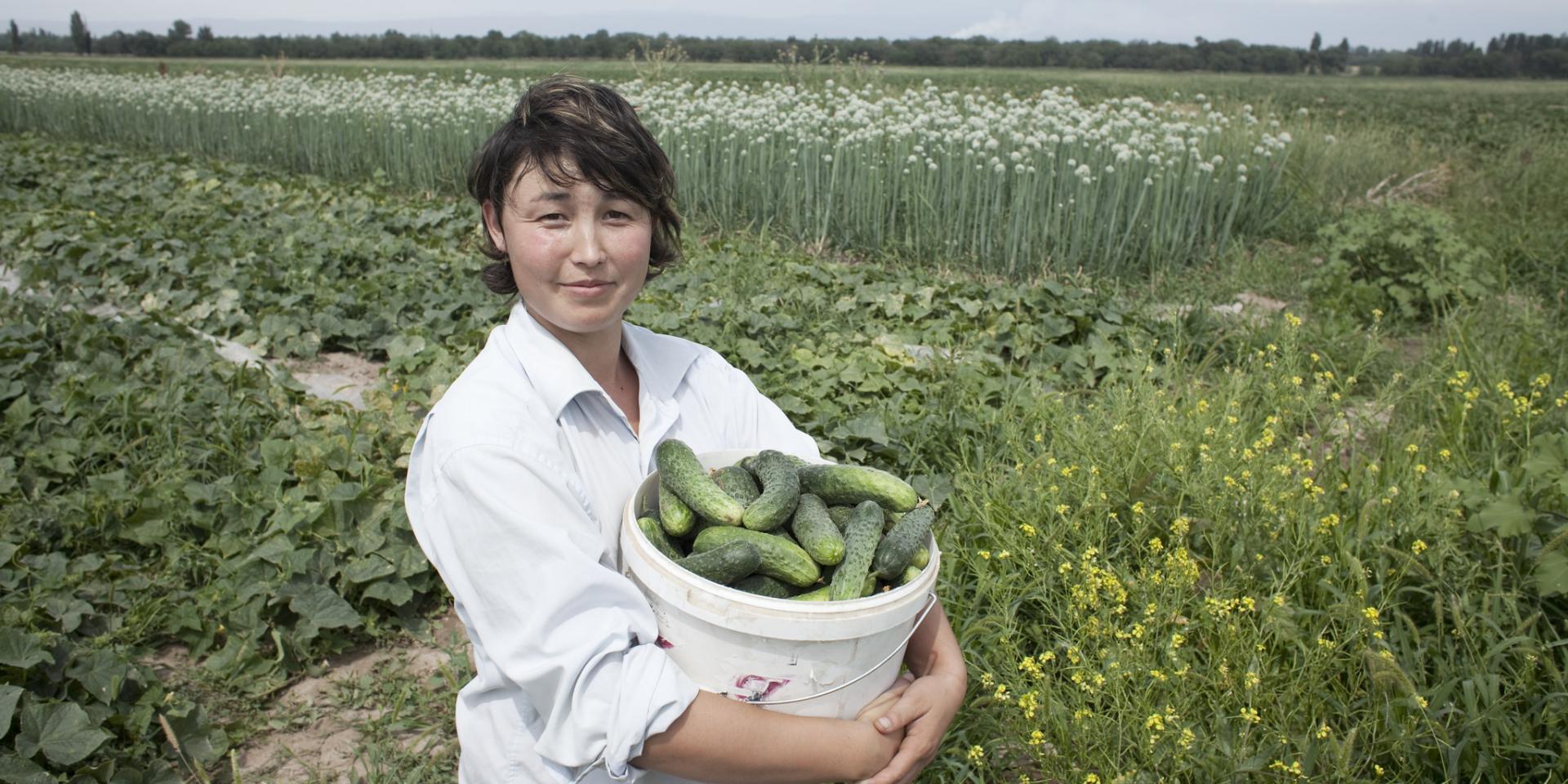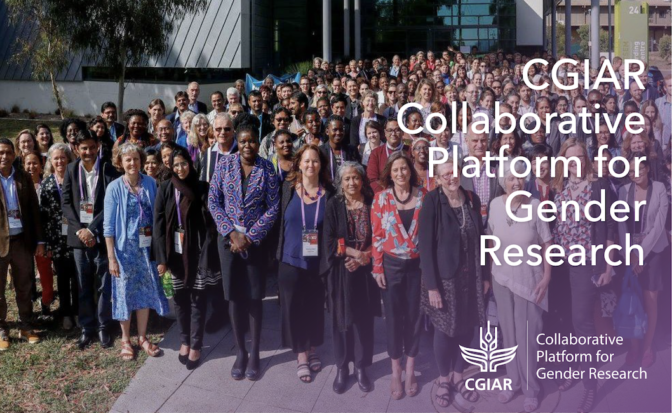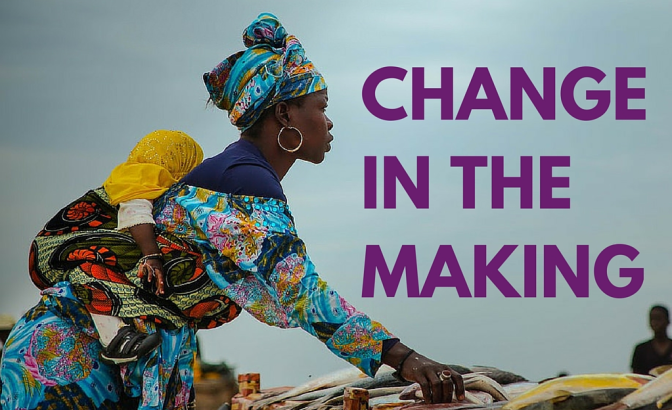History

The CGIAR GENDER Platform was initially formed in 2020, and was in 2022 re-launched as a CGIAR Impact Platform, serving the CGIAR impact area on gender equality, youth and social inclusion.
The CGIAR GENDER Impact Platform continues to build on a wealth of research and learning generated by two previous CGIAR gender research initiatives dating back to 2012, namely the CGIAR Gender and Agriculture Research Network (2012-2016) and the CGIAR Collaborative Platform for Gender Research (2017-2019).
CGIAR Collaborative Platform for Gender Research (2017-2019)
As part of phase 2 of CGIAR Research Programs, the CGIAR Collaborative Platform for Gender Research had the mandate to increase the visibility, impact and quality of gender research undertaken across the CGIAR, and set a system-wide gender research agenda. Housed in the CGIAR Research Program on Policies, Institutions, and Markets (PIM) and managed by Royal Tropical Institute (KIT), it served all CGIAR research programs and centers. The platform was operational from January 2017-December 2019.

The CGIAR Collaborative Platform for Gender Research supported priority setting for gender research, strategic partnerships, capacity development, and collaboration between and among CGIAR programs, centers, and partners, building on the work of system-wide gender network established in 2012. The platform coordinator, Rhiannon Pyburn, was based at the Royal Tropical Institute (KIT) in Amsterdam, supported by a communications officer and an assistant to the coordinator.
Among the main achievements of this phase of CGIAR gender research activities, various grants have been issued which allowed the CGIAR-wide gender community to investigate promising areas of research around the specific domains of:
- Gender dynamics in seed systems
- “Feminization” of agriculture: Building evidence to debunk myths on current challenges and opportunities
- Gender Transformative Approaches in agriculture
- Gender dynamics in value chains: Beyond the production node and single commodity analysis
A key product of the Platform is a forthcoming landmark publication that takes stock of over 30 years of CGIAR gender research, critically reframing analysis by posing the question: “How is agricultural and natural resource management research contributing to gender equality”? On the basis of research done to date, the chapters reflect on key themes related to gender and agriculture/natural resource management, but also crafts a forward-looking gender research agenda, heralding a next generation of gender research within and beyond CGIAR.
A brochure tracks key activities, results and outcomes of the CGIAR Collaborative Platform for Gender Research, including the annual scientific conferences of 2017, 2018 and 2019 (the larger ‘Seeds of Change’ conference co-convened with ACIAR and the University of Canberra). The Engendering Data and Methods blog continues to be published through IFPRI.
In the January 2020 PIM newsletter, Rhiannon Pyburn reflected on the three years (2017-2019) of the CGIAR Collaborative Platform for Gender Research.
CGIAR Gender and Agriculture Research Network (2012-2016)
In 2012, with the initiation of the CGIAR Collaborative Research Program, there was an increase in investment in gender, as each CGIAR Research Program (CRP) was to have a gender strategy. As a means of supporting each other, the CRP gender focal points, along with the CGIAR senior gender advisor, started an informal gender network, namely the CGIAR Gender and Agriculture Research Network. This network was supported by the International Center for Tropical Agriculture (CIAT), which led collaborative efforts to increase the visibility of gender research and foster interactive knowledge sharing among gender researchers.
Having a face-to-face meeting once a year later led to annual conferences, and at the end of its tenure, the CGIAR Gender and Agriculture Research Network published a report, called Change in the Making, drawing on published gender research findings from CGIAR. This report focuses on gender-equitable control over productive assets and resources, which is a component of the gender equity outcome in the CGIAR Strategy and Results Framework 2016-2030.
